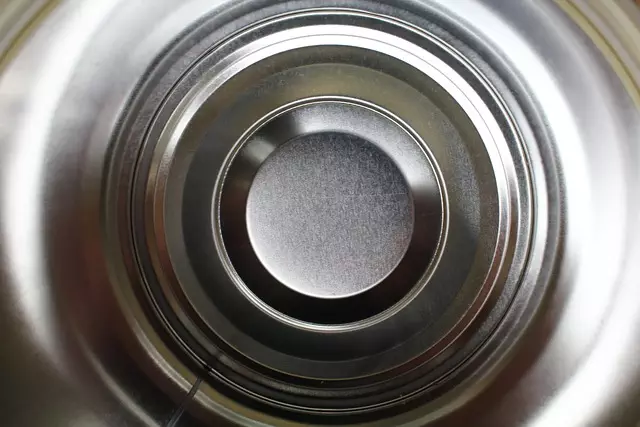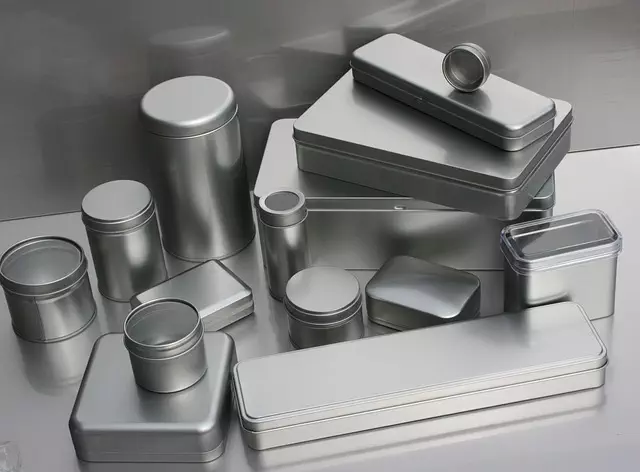Container packaging solutions have evolved, offering businesses diverse, eco-friendly options. Sustainable container packaging, using materials like recycled paper or biodegradable plastics, reduces environmental impact and enhances brand responsibility. Custom container packaging allows distinctive branding and specialized product protection. The shift towards sustainability is driven by environmental consciousness and regulatory pressures, with businesses seeking eco-friendly solutions without compromising quality. Customization aids in waste reduction, brand visibility, and supply chain efficiency. Advanced materials like biodegradable options and refillable kits cater to the growing demand for sustainable alternatives. This transformation benefits various industries, ensuring product integrity while meeting market demands for both sustainability and customization. Future trends include innovative, personalized designs using eco-friendly materials, fostering a circular economy.
Container packaging solutions have evolved to meet the demands of modern logistics and consumer expectations. In an era focused on sustainability, understanding the basics and benefits of eco-friendly container packaging is more crucial than ever. From customizable options to material innovations, this comprehensive guide explores various aspects of container packaging. Discover how sustainable practices transform industries, while delving into future trends that promise to revolutionize shipping worldwide.
- Understanding Container Packaging Solutions: The Basics
- Benefits of Sustainable Container Packaging
- Types of Custom Container Packaging Options
- Material Considerations for Eco-Friendly Packaging
- Designing Effective and Functional Containers
- Implementing Container Packaging in Different Industries
- Future Trends in Container Packaging Solutions
Understanding Container Packaging Solutions: The Basics
Container packaging solutions have evolved significantly, offering businesses a wide array of options to meet their specific needs. Understanding the basics involves grasping how these containers are designed to protect products during transportation and storage while also catering to sustainability goals and brand identity. Sustainable container packaging, for instance, leverages eco-friendly materials like recycled paper, biodegradable plastics, or metal to reduce environmental impact.
Custom container packaging takes this a step further, allowing companies to create unique designs that reflect their brand image. This personalization can range from shapes and sizes to specialized features like insulation, ventilation, or security locks. Such tailored solutions not only enhance the unboxing experience but also ensure products remain safe and intact, even in demanding logistics environments.
Benefits of Sustainable Container Packaging
The shift towards sustainable container packaging is a significant development in the industry, driven by growing environmental consciousness and regulatory pressures. This approach offers multiple advantages for businesses seeking eco-friendly solutions without compromising on quality or functionality. By adopting sustainable container packaging, companies can reduce their carbon footprint, as these containers are often made from recycled materials, biodegradable polymers, or are designed for easy recycling at end-of-life.
Custom container packaging takes this a step further, enabling manufacturers to create tailored solutions that meet specific product requirements while adhering to sustainability goals. This customization ensures efficient load space utilization, reduces waste, and can enhance brand visibility through unique designs. Moreover, sustainable container packaging contributes to a circular economy by encouraging reuse and recycling, thereby fostering a more responsible and resilient supply chain.
Types of Custom Container Packaging Options
In today’s market, businesses have an array of container packaging solutions to choose from, with a strong emphasis on sustainable container packaging. Custom container packaging is no longer merely about aesthetics; it’s a strategic decision that can enhance brand image, improve product protection, and meet specific supply chain needs. Options range from standard plastic or cardboard containers to more innovative designs like biodegradable materials, refillable kits, and multi-functional packages.
Customizing these container packaging solutions allows businesses to stand out, appeal to environmentally conscious consumers, and create a unique unboxing experience. From food and beverages to electronics and pharmaceuticals, the possibilities are vast. Whether opting for specialized shapes, sizes, or materials, custom container packaging plays a pivotal role in product presentation, storage efficiency, and overall customer satisfaction.
Material Considerations for Eco-Friendly Packaging
Designing Effective and Functional Containers
Designing effective and functional containers is a key aspect of any robust container packaging solution. In today’s world, where sustainability is a pressing concern, manufacturers are increasingly focusing on eco-friendly materials and designs that minimize environmental impact. Custom container packaging plays a pivotal role in this shift, allowing businesses to choose dimensions, shapes, and materials suited to their specific products, reducing waste and enhancing overall efficiency.
Innovative sustainable container packaging not only benefits the environment but also offers logistical advantages. Well-designed containers can improve product protection during transit, reduce loading times at warehouses, and streamline distribution processes. By integrating advanced features such as secure sealing mechanisms, stackability, and modularity, custom container packaging solutions cater to diverse industry needs while promoting a greener approach to logistics and supply chain management.
Implementing Container Packaging in Different Industries
In various industries, the adoption of container packaging solutions has revolutionized the way products are stored, transported, and displayed. This shift is largely driven by the growing demand for sustainable container packaging that reduces environmental impact while ensuring product integrity. Industries such as food and beverage, pharmaceuticals, cosmetics, and retail have all benefited from custom container packaging tailored to their unique needs.
For instance, the food industry relies on container packaging to maintain product freshness and safety during transit, often employing innovative designs like airtight containers and insulated packaging. Pharmaceuticals, on the other hand, require secure packaging to protect medications from damage and tampering, leading to the use of robust, tamper-evident containers. Custom container packaging allows these industries to not only meet regulatory standards but also enhance brand image through visually appealing and distinctive packaging solutions.
Future Trends in Container Packaging Solutions
The future of container packaging is poised for significant advancements, driven by a growing emphasis on sustainability and customization. Brands are increasingly seeking eco-friendly alternatives to traditional materials, leading to innovations in sustainable container packaging. Biodegradable and compostable options, made from materials like plant fibers or mushrooms, are gaining traction as consumers demand more environmentally conscious choices. This shift not only reduces the carbon footprint but also minimizes waste, contributing to a circular economy.
Custom container packaging is another trend that promises to transform the industry. With advanced printing technologies, brands can now create unique, visually appealing containers that enhance product branding and customer engagement. Customization allows for personalized experiences, catering to diverse consumer preferences and market demands. This evolution in container packaging solutions not only meets sustainability goals but also offers unparalleled brand exposure, ensuring products stand out on retail shelves.


